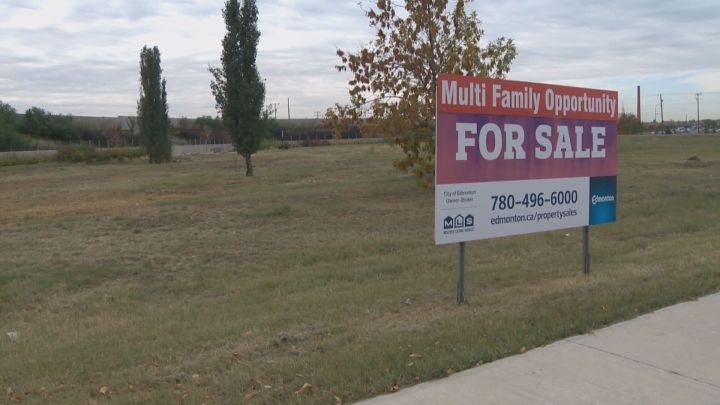No new money is being spent by the city through Homeward Trust to combat homelessness, but executive committee heard Tuesday that more emphasis is putting put on program spending, while housing construction is being left to the other orders of government.

Next week, Edmonton city council will be asked to approve the updated plan, which also includes a subsidy of $1.2 million.
Councillors heard that financial data will tell the story. Eventually, it will show how effective it will be when money is diverted away from police intervention and acute care beds at the Royal Alexandra Hospital and instead used for supportive housing.
Mayor Don Iveson cited an example of one individual who spent more than a year at the Royal Alex, at a cost of $1,600 a day.
To compare, Ambrose Place in McCauley comes in at around $375,000 per unit, Susan McGee with Homeward Trust said. She said that’s a higher-cost facility because of the added common space that’s used for treatment.
“It can be quite up there, but on the other hand, they’re still considerably less than anything we would build new for a health-oriented facility.
“Certainly, other projects where we have supports on site that do not require that space, such as Balwin, they’re more in the $175,000-a-unit range.”
Balwin in northeast Edmonton will have a new facility later this fall.
Coun. Scott McKeen said Ambrose Place is in the early stages of building its economic case. He said they can demonstrate an 80 per cent reduction in hospital visits.
“They will get data at some point on a reduction in calls for service for very expensive police and paramedics. It would seem to me — economically speaking, not just the fact that we’re bringing dignity to the lives of these people, but health for the first time — it would seem to me that is the opportunity to win and win and win.”
The province and the federal government is aware of the argument, Iveson said. The problem is there isn’t immediate payoff.
“You start building the permanent supportive housing unit tomorrow, it takes a year to build it. It takes another six months to get into it and get stabilized. It’s not a short-term return. It’s a medium-term return. But in the meantime, it’s an affront to those people’s dignity. And it’s a lost opportunity to save a lot more money down the road.”
The committee was also told that expectations are becoming more realistic, as faith-based groups are now on the ground floor and working with nearby residents to meet concerns.
Mike Van Boom, with the Capital Region Interfaith Housing Group, said developers and organizations were working at cross purposes in the past, but now are more coordinated.
“Things were really going rough between when developers didn’t have good tools and the community didn’t necessarily know the tools either.
“Our front line is there, but certainly doing some of that training and coaching to help faith communities help constructively, we’ve also recognized that need. So we are planning to do some of that coaching and teaching.”
The medium-term homelessness target is now to end chronic and episodic homelessness by 2022. At that point, the hope is to be able to match someone with supports within three weeks.
In any given year in Edmonton it’s estimated there are 11,000 who are homeless from time to time.
Officials working on the project are committed to housing 4,000 people within three years. That’s why the hope is they can leverage another $30 million in operating costs from the other orders of government to bring the total up to $65 million a year, plus $230 million that will be needed in capital spending over six years to build new housing.






Comments